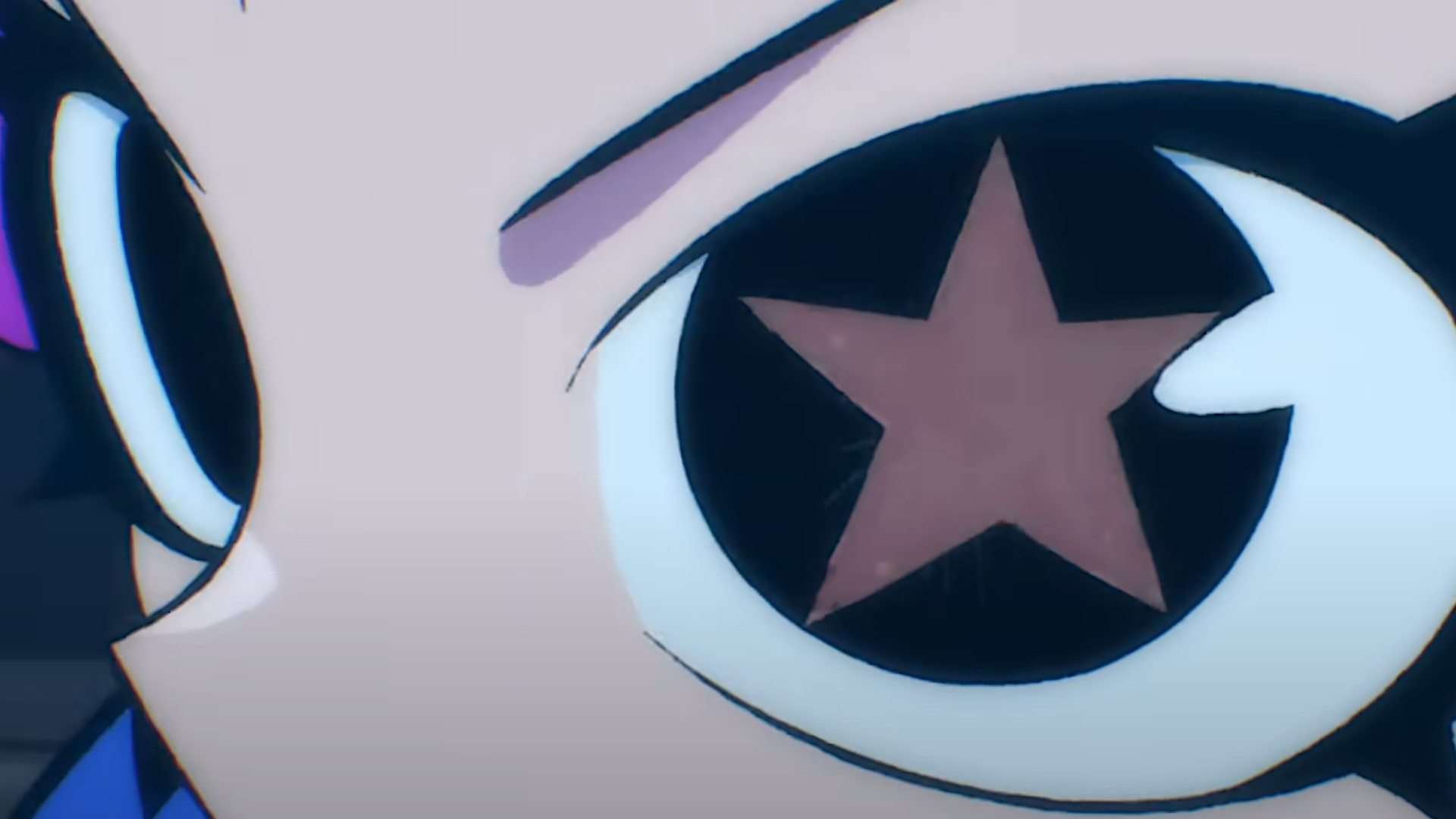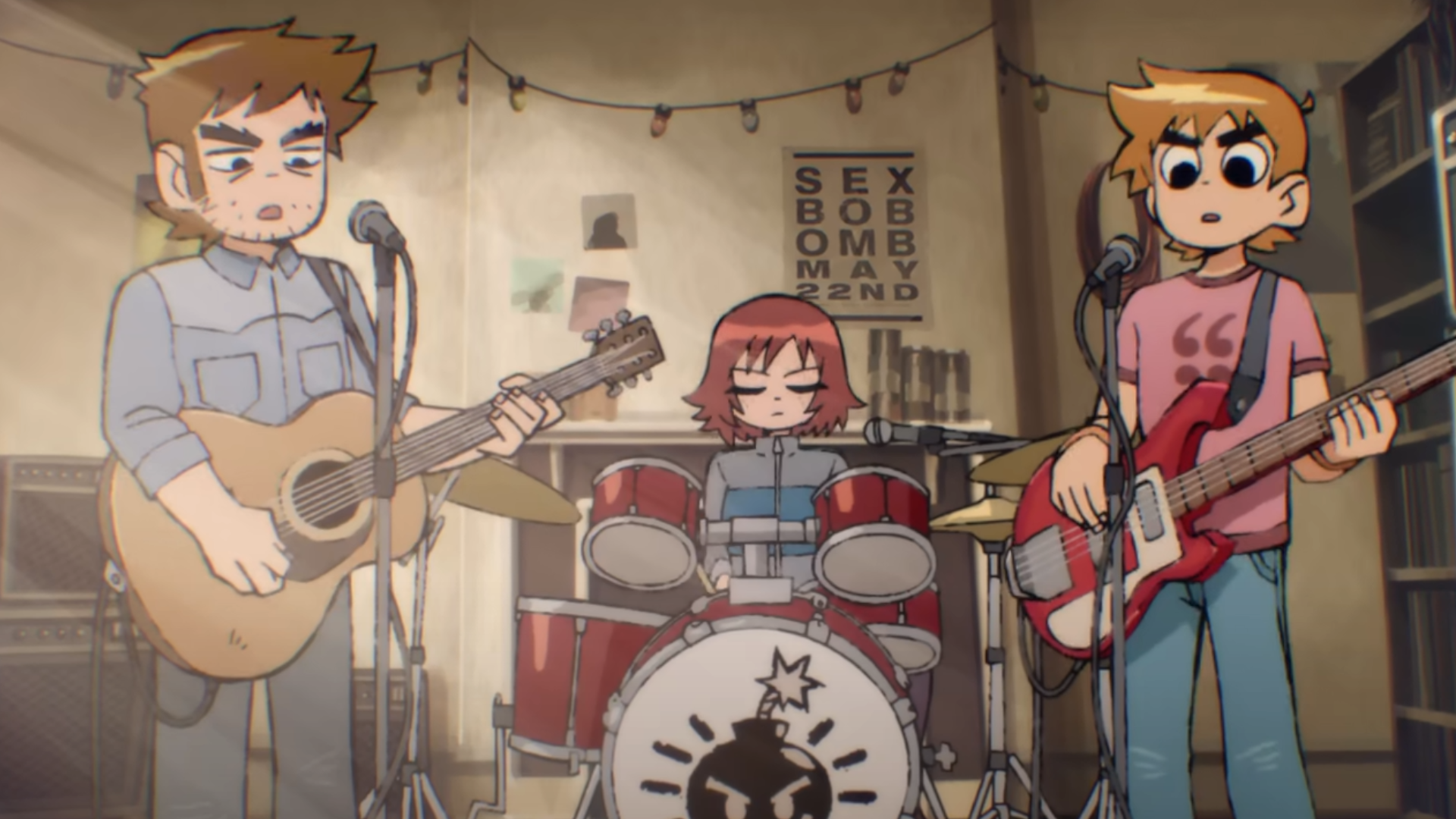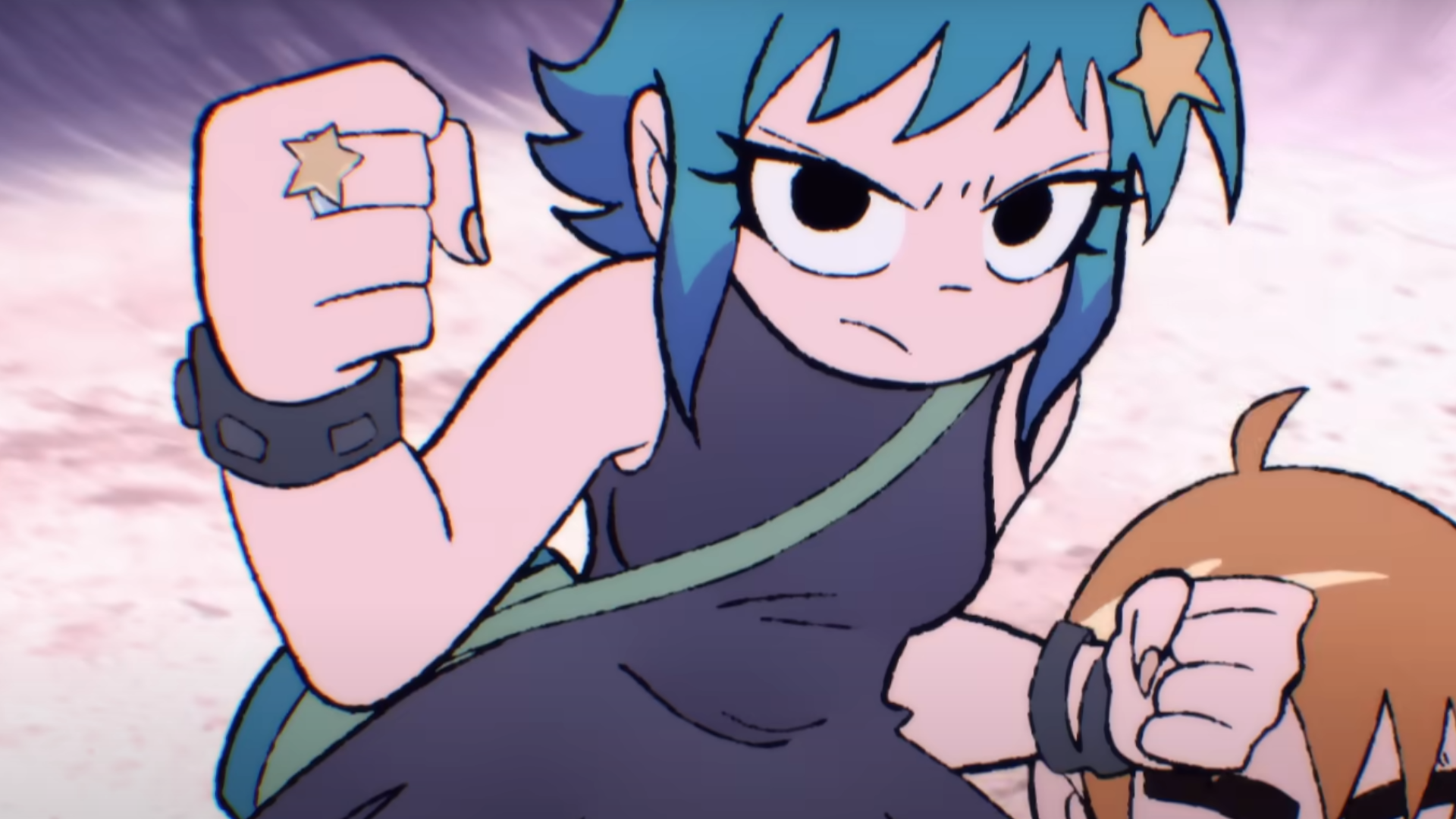I'm glad Scott Pilgrim Takes Off did its own thing, and I think you should be too
Change is good.

Scott Pilgrim Takes Off was released in its entirety last Friday. I was a teenager when Scott Pilgrim vs. the World came out, so—like any fifteen year old who was even remotely into video games—it became my whole personality for a couple of months. And why wouldn't it? For all its flaws, it's a bombastic, funny action movie directed by Edgar Wright, based on a pretty great graphic novel. I'm still fond of it to this day.
So when I heard Scott Pilgrim Takes Off was happening, I went 'Oh, that makes sense'. The Michael Cera-fication of the graphic novels had always seemed, to me, more a byproduct of marketing than a natural fit. The source material should've been animated to begin with, and I was glad comic fans were gonna get the faithful adaptation they always wanted. Bryan Lee O'Malley, the comic's creator, was heavily involved—and Edgar Wright was back to serve as an executive producer alongside BenDavid Grabinski.
My excitement was tinged with doubt, though. Here's the problem: adaptations are hard to do, and you always upset somebody. Scott Pilgrim vs. the World cut corners from its comic counterpart. It also had to invent its ending wholesale, since the comic was still being written when the movie came out. O'Malley even intervened on the movie's ending, making sure Scott ended up with Ramona instead of the ostensibly 17 years old Knives Chau which… yeah, that was probably for the best.
This also meant that a lot of the comic's more impactful story beats—like Lisa Miller, an entirely different love interest from Scott's childhood—got completely dropped. I saw the same writing on the wall with this adaptation. Eight 20-odd minute episodes fill a runtime of around three hours. That's not even that much more than the movie. Even a faithful adaptation would have to do some pruning.
Which is why I'm glad Scott Pilgrim Takes Off wasn't an adaptation, at all. Warning: I'm gonna get into spoilers for Scott Pilgrim Takes Off, which I encourage you to watch if you haven't—it's a great time.
Straight riffin'

The show is more of an alternate world sequel to the comic, pulling an Invincible-style twist ending in its first episode—just with more pixels and less gore splatter. Matthew Patel shows up and Scott just absolutely beefs it. Dead as a doornail, coins clattering to the floor. And boy, is it way more interesting.
I'd initially planned to chip away at the series over the week, but that one twist was enough to keep me glued to my seat for a patented Netflix binge. It was effective enough to wonder if releasing all eight episodes actually kinda ruined its reception—giving time for that first episode to sink in might've helped shocked viewers mourn the faithful adaptation that would never be, and adjust to the story it's actually telling.
The biggest gaming news, reviews and hardware deals
Keep up to date with the most important stories and the best deals, as picked by the PC Gamer team.
What follows is still a heartwarming retrospective of the series, exploring Ramona's past through Ramona's eyes (for once) and giving her an opportunity to redeem her former exes rather than consign them to death at the hands of a plucky nerd.
Some fans felt soured by this departure—and the changes that followed. For example, the revelation that Scott and Romana hit a rough patch in the comic's "canon ending" about a decade after they got married. This sort of ignores the series' core premise, though—Scott and Ramona are disasters.
They improve, they grow, they change, but nobody develops in a straight line. Pilgrim isn't a saint even when he's his best self. This idea that you'll suddenly reach some big turning point and never make the same mistakes again—it's something that only exists in stories. Truth is, self-improvement is an exhausting, constant pain in the butt, and it's okay for Scott Pilgrim to reflect that.
Sure, the prospect of a 10-year separation from Ramona while Scott trains to become a muscle-bound Goku is a little harsh. I feel obligated to remind you, however, that this is a world in which people burst into coins when they die, or summon hipster chicks to throw fireballs at people. The paparazzi are a clan of ninjas. A 10-year training montage feels part of the tropey, irreverent territory.
The future is now

That's not to mention that this is all coming from the heart of the series' creator. In a Variety interview, O'Malley remarks: "People debate ‘Scott Pilgrim’ characters—like, the finer points of their personalities—on Twitter every fucking day."
The interview goes on to describe a dinner between Grabinski and O'Malley where the latter was able to vent his frustrations, eventually leading to the idea of Scott Pilgrim Takes Off's alternate universe exploration: "I'm more drawn to a mess than to perfection, so all these ideas of disrupting 'Scott Pilgrim' really appealed to me."
The detractors of O'Malley's approach here reminds me, perhaps fittingly, of bands and their fans' responses to new albums. There's always a dark corner of any fanbase who get furious when a band branches out. And, to their credit, sometimes it doesn't work—sometimes a band does get worse over time.
Scott Pilgrim Takes Off isn't that, though. It's the rare "getting the band back together" story that enriches the original material without stomping on its toes. I really liked this alternate timeline. These departures in style and story are always interesting. And like O'Malley, I'd rather watch an interesting mess than see a checked-out creator replay the best hits.
I understand, though. If you loved the original story so much that you were excited to see it in its fully-animated glory, Takes Off probably didn't take off. But I feel the need to point out that you also got a continuation of the story you loved, an alternate universe that shows not just Ramona, but the story's main villains in an interesting, multi-faceted light. You got more Scott Pilgrim in 2023, and that's neat as hell.

Harvey's history with games started when he first begged his parents for a World of Warcraft subscription aged 12, though he's since been cursed with Final Fantasy 14-brain and a huge crush on G'raha Tia. He made his start as a freelancer, writing for websites like Techradar, The Escapist, Dicebreaker, The Gamer, Into the Spine—and of course, PC Gamer. He'll sink his teeth into anything that looks interesting, though he has a soft spot for RPGs, soulslikes, roguelikes, deckbuilders, MMOs, and weird indie titles. He also plays a shelf load of TTRPGs in his offline time. Don't ask him what his favourite system is, he has too many.

